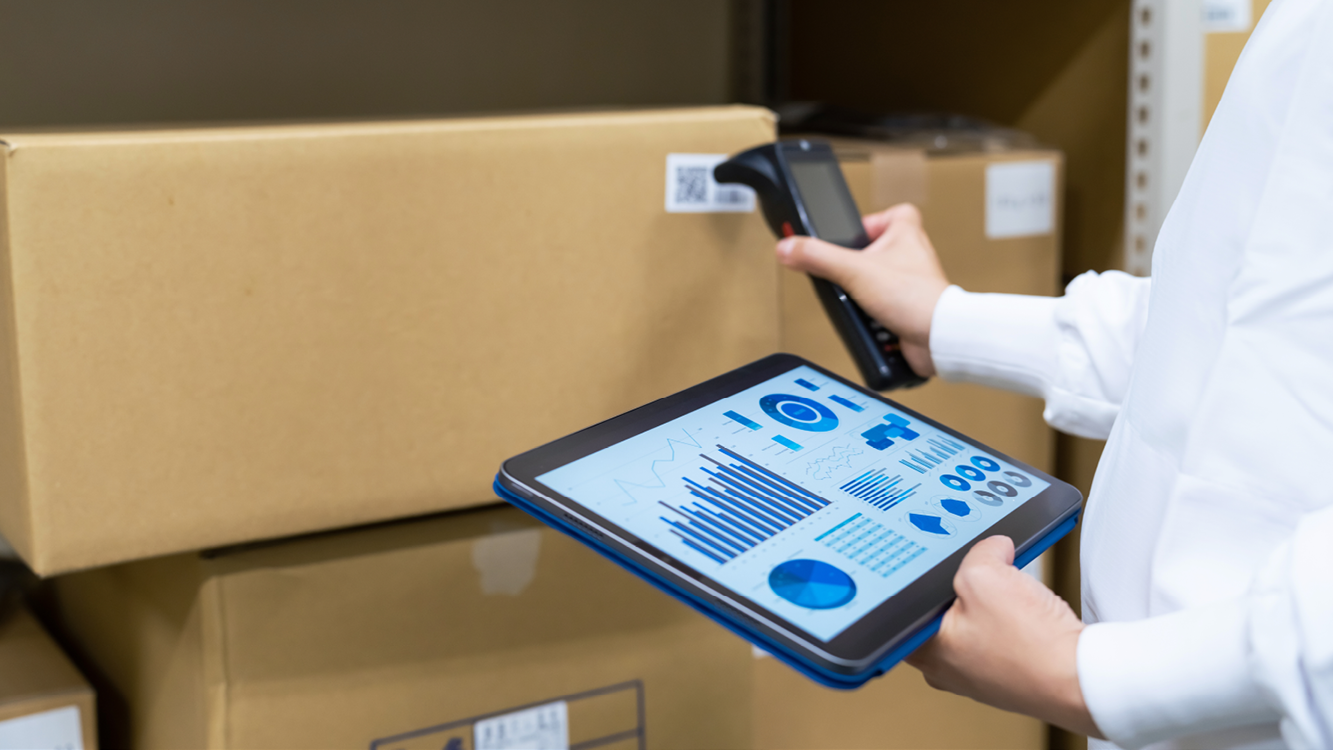RFID Opportunities You Don’t Want to Miss
RFID is a familiar technology, but TSPs are finding innovative ways to use this technology to solve their clients’ pain points and provide value.
BlueStar's diverse portfolio offers unparalleled access to premium products and services that drive business growth and success. From state-of-the-art hardware to advanced software solutions, our portfolio is designed to empower businesses with the tools they need to thrive in today's competitive landscape.
Our vertical-based content focuses on different industry technologies, solutions, and insights.
A true VAD offers top-notch pick, pack and ship services, and provides programs and services that add value to the distributed products that increase their value or worth.
The BlueStar DifferenceTSPs can grow their businesses by meeting the demand for solutions that help enterprises operate more sustainably.
Innovations have led to new ways to use RFID technology and use cases that benefit from it. However, technology solutions providers (TSPs) need to ensure they’re aware of one more: enhancing a business’s sustainability practices.
Europeans are committed to sustainability. Fortune reports that even with economic pressures slowing the economy, 75 per cent of consumers take environmental responsibility into account when deciding where to spend their money, and about 33 per cent would switch to companies with more sustainable practices. Businesses want to keep those customers, but they also want to comply with new sustainability regulations. For example, legislative activity in the EU focuses on creating a circular economy of recycling, reuse, and refurbishment in addition to decarbonisation and requirements for sustainability reporting.
Legacy practices and processes usually will not meet customer expectations or keep enterprises compliant. Your clients need innovative solutions geared toward sustainable operations.
RFID: A Game-Changer for Sustainability
RFID technology has characteristics and capabilities that support sustainable processes. It enables data collection and communication without establishing a line of sight and simultaneously captures data from a large volume of tags. RFID tags can also hold more data than a barcode, so companies can record and track information about the source of materials, manufacturing, sale, and use.
RFID’s functionality and cost-effectiveness make it a viable choice for tracking reusable containers and packaging, supporting the circular economy. It also enhances inventory management, helping to reduce overstocking and waste. RFID throughout the supply chain also enables data-driven decisions that optimize routes, reduce emissions, and use resources wisely. It also generates real-time data for reporting, streamlining the compliance process with regulations.
Enterprises Need TSPs’ Expertise to Make RFID Work for Sustainability
Although RFID offers a range of benefits to businesses and organisations looking for ways to improve their sustainability practices, this technology requires expertise to implement. First, companies need help planning their systems, including which RFID technology to use, e.g., active or passive tags using low frequency (LF), high frequency (HF) or ultra-high frequency (UHF). Those decisions will impact the cost of the system. However, using the correct tag type can also help overcome interference and data loss issues. Businesses also need guidance on where to place tags on items to ensure accurate data capture.
In addition, your clients need your help integrating RFID technology with their warehouse management system (WMS) or enterprise resource planning (ERP) system. Successful integration may require changes to infrastructure or software – and a TSP’s expertise in these areas.
Businesses also need your guidance to determine where to place RFID readers in their facilities and the appropriate rate and volume of materials that can pass by them for optimal data capture and maximum operational efficiency. Businesses must also take data security into account. TSPs must educate their clients on the importance of locking memory on writable RFID tags to ensure data integrity and privacy when sensitive information is involved.
The Outlook of RFID in Shaping Sustainable Practices
Although RFID is a familiar technology, innovation continues, some of which can significantly impact enterprises’ ability to adopt sustainable practices. The RAIN RFID Alliance, for example, advocates for an approach using UHF tags and cloud computing, which can overcome sustainability issues with the batteries used in Internet of Things (IoT) systems.
Innovators have also brought smart, scalable, reusable packaging to market, and researchers have announced a breakthrough in paper-based (no metal required) tags. Competitive TSPs will stay informed of these and other developments in RFID to plan new offerings, solutions for complex applications – and future business growth.
RFID for Sustainable Practices is a Growth Opportunity
Enterprises throughout Europe need solutions that will help them meet their customers’ expectations and comply with sustainability regulations. RFID technology can provide the foundation of solutions that help to track and trace materials and their movement in the supply chain. Furthermore, it collects that data efficiently, making compliance easier and less expensive.
By leveraging your knowledge of RFID technology and the industries you serve, you can meet the demand for solutions that support sustainable practices, streamline their planning and implementation, and ensure they provide value throughout the life of the system. You can also capitalise on this opportunity to build deeper relationships with your clients and provide additional solutions and services.
Take this opportunity to do something impactful for the environment and your business.

RFID is a familiar technology, but TSPs are finding innovative ways to use this technology to solve their clients’ pain points and provide value.

Whether ensuring compliance with GDPR, reducing vulnerabilities through robust encryption, or streamlining implementation, TSPs can provide a...

Help your clients comply with regulations and meet consumer demands for traceability in innovative ways with this familiar technology.
